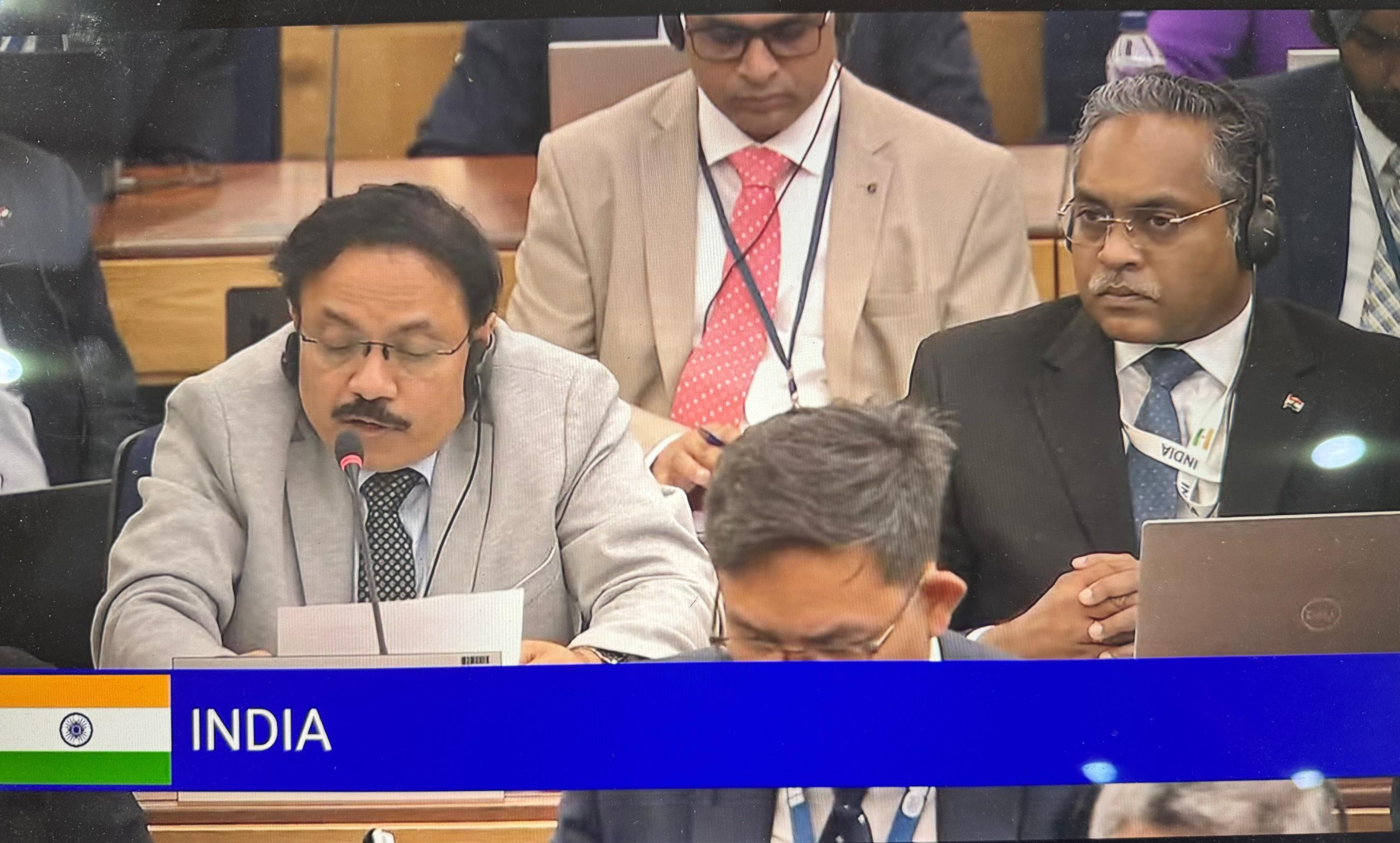India has strongly reiterated its commitment to maritime safety and gender equality during the 134th session of the International Maritime Organization (IMO) Council, currently being held from 07 to 11 July in London. The Indian delegation at the session is led by T.K. Ramachandran, IAS, Secretary, Ministry of Ports, Shipping and Waterways.
On the opening day of deliberations, India delivered a resolute statement in response to recent maritime incidents involving foreign-flagged container vessels operating in Indian waters. These incidents—linked to undeclared hazardous cargo and structural and stability deficiencies—have triggered growing concern about the safety protocols surrounding global container shipping operations.
Calling for urgent action, India urged the IMO to initiate a comprehensive investigation and global review of such incidents. The delegation highlighted the critical role of the Indian Navy and the Indian Coast Guard in safeguarding life at sea and emphasized the pressing need to strengthen international safety frameworks. Particular attention was drawn to improving global standards around the packaging, declaration, stowage, and monitoring of lithium-ion batteries and other dangerous goods categorized under the International Maritime Dangerous Goods (IMDG) Code.
As part of its proposal, India advocated for the establishment of IMO-led investigations into container ship accidents. According to the Indian delegation, such efforts would foster the development of global best practices, improve standardisation, and reinforce operational protocols for safer and more secure maritime activities.
In addition to addressing maritime safety, India took an active role in the session’s discussions on gender equality, aligning its efforts with the IMO’s Gender Inclusion Strategy. The delegation showcased the national initiative “Sagar Mein Samman” (Honour at Sea)—launched on November 25, 2024, by the Directorate General of Shipping. This landmark programme is designed to cultivate a safe, respectful, and inclusive maritime environment, enabling women to participate and advance across all levels of the industry, from seafaring roles to executive leadership.
India also highlighted a notable success: a 650% rise in the number of Indian women seafarers, demonstrating its strong commitment to building an equitable maritime workforce and ensuring equal opportunities for all.














